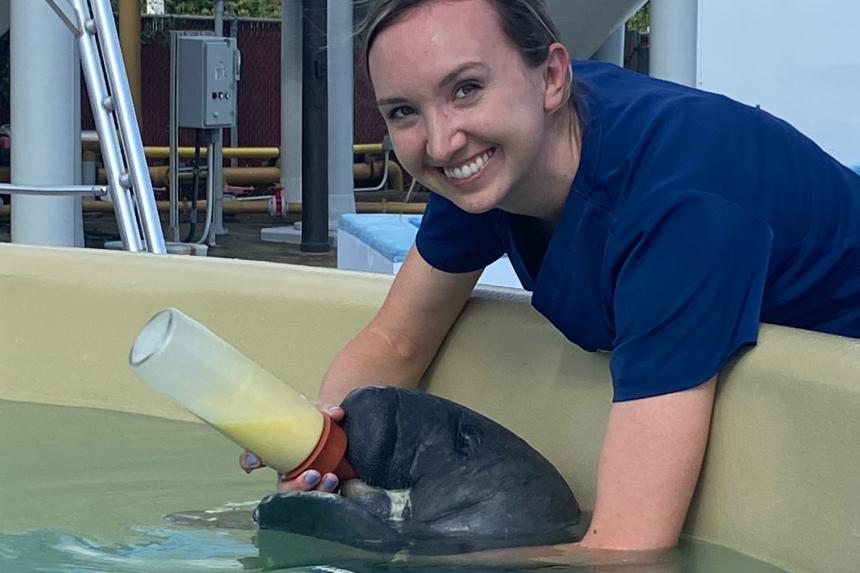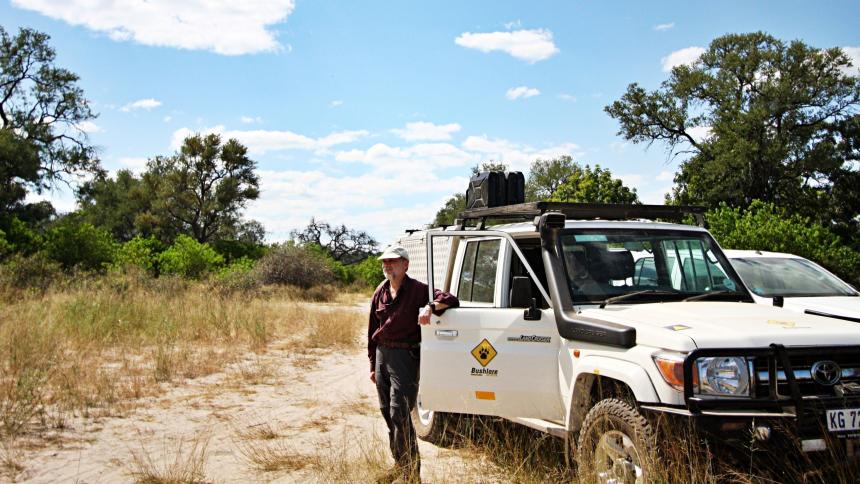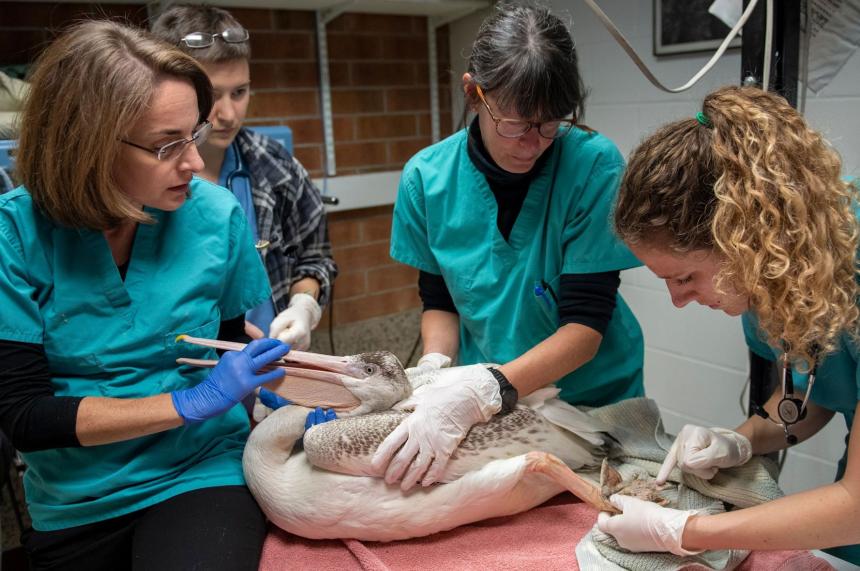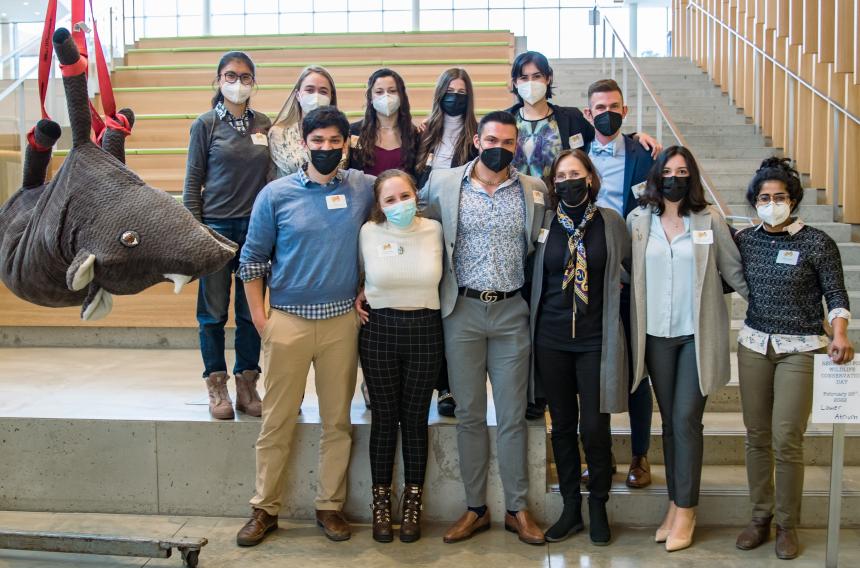In the News

News
June 29, 2023
Cornell alumna Tatiana Weisbrod, DVM ‘17, once thought medical school was in her future, until she came across the Cornell AQUAVET® program, which changed the trajectory of her career.

May 01, 2023
Kristina Ceres' extensive research, from cattle with tuberculosis to the critically endangered great hammerhead shark, led the Wildlife Disease Association to select Ceres for a Graduate Student Scholarship Award, which recognizes outstanding academic accomplishment and future potential in wildlife research.

January 18, 2023
From Ithaca to the plains of southern Africa, the Cornell Wildlife Health Center is working to heal the natural world. Launched in 2020, the center was formed to unite Cornell’s leading wildlife health professionals under a common mission: to repair the fractured relationship between people and nature.

January 16, 2023
The Cornell Wildlife Health Center has launched a new Student Support Fund for off-campus apprenticeships with free-ranging or captive wildlife, on-campus wildlife research, and student travel to present at professional conferences on wildlife health and conservation.

January 10, 2023
Led by Cornell's Dr. Michael Stanhope, a team of scientists has sequenced genomes of the great hammerhead shark and shortfin mako shark, both endangered species.

November 16, 2022
Cornell hosted the Great Lakes Aquaculture Days 2022 Fish Health Workshop. New York state fish farmers, graduate students, and researchers from Cornell and other universities gathered to join for a day of hands-on learning and shared expertise in fish health.

August 22, 2022
Results of a recent study, including Cornell veterinary student Michelle Greenfield, DVM '23, as first author, indicate that some relationships established by common bottlenose dolphin calves are maintained into their juvenile stages.

March 21, 2022
Cornell’s Zoo and Wildlife Society hosted its first Wildlife Conservation Day Feb. 26, a one-day symposium devoted to education and training for students with an interest in non-domestic species.

February 21, 2022
Cornell veterinary student Michelle Greenfield, DVM '23, has leveraged her lifelong passion for aquatic animals to produce Aquadocs – the only aquatic veterinary podcast as well as a top 50 life sciences podcast on iTunes. Each show dives into a different facet of marine and aquatic veterinary health.

Blog
December 07, 2021
Cornell veterinary student Hery Ríos-Guzmán, DVM '24, writes about how the AQUAVETⓇ I Program has helped him feel better prepared for a future as an aquatic veterinarian.
